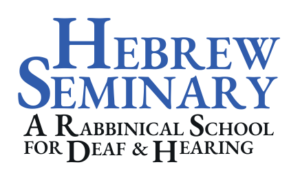Sefer Assiyah
The Book of Making
September 2017
Recently, on an extraordinarily mild and sunny day in Chicagoland, I went to a nature center with my son and grandson. We peered and searched through aquariums, terrariums and pools of water — home to local critters. We spent a lot of time with the turtles – who knew they were such adept communicators when stressed out with their roommates?!?!
We also walked the boardwalks and trails strewn with half-eaten acorns. I did not see my grandson’s pockets full of them! Yes, I can pretend minor infractions like ‘don’t pick the wildflowers,’ don’t really count, but we were nearing fall. It was Elul and Rosh Hashanah’s accounting was approaching.
Rosh Hashanah is like an acorn upon the ground. It awaits the coming year in the cycle of life. Its growth depends on rain and microbial rich soil, just as we water our hopes and nurture our souls in anticipation of our dreams establishing roots in the coming year.
The Talmud says, “On Rosh Hashanah, all the inhabitants of the earth stand before God, as it says in the Thirty-third Psalm, ‘[God] fashions their hearts as one, and discerns all their actions together.’” Rosh Hashanah brings the choice of all choices – did I actively choose to learn and grow towards becoming a better person and what will I do with the opportunity to walk the earth in the coming year?
As much as I would like to bask in the sun and hibernate in a womb of soil as the seasons turn, more is expected of me. The gift of consciousness gave me the blessing and the curse of seeking more to life as well as the awareness that there are sacred parameters and goals – i.e. God, as best as we can intuit Her. As Rabbi Alan Lew wrote, “The central imperative of Judaism, I believe, is to recognize and manifest the sacred in everything we do and encounter in the world.” I’ve often wondered how I can live with the grace and confidence of an oak tree, an orchid or a heron. I think this Jewish imperative is the way.
“Ethically speaking, these Days of Awe picture us standing in the full light of God’s scrutiny and wondering if we have remained true to the purpose for which we were created,” writes Rabbi Lawrence A. Hoffman. “Have we taken proper responsibility for the world, or has our selfishness overcome our altruism?” Looking the other way as one stuffs their pockets full of acorns is a metaphor. Yes, there’s a line between unfaltering, holier than thou rightness and holding life lightly aware of its sacredness. One approach separates us and one embraces us all. On Rosh Hashanah God fashions our hearts as one. This is the world’s birthday. We are Adam Kadmon. We are all one soul and responsible for each other. We are a collective species; a collective holographic universe of Five Worlds.
And what stands between us? Rebbe Shapira writes, “’And I stand between God and you’ (Deuteronomy 5:5.) The Baal Shem Tov explained this to mean that the ‘I’ – the ego, the sense of selfness that we feel and that drives us to seek only our own selfish needs – is what stands between God and one’s true self – the soul. But how do we get past the barrier imposed by the ego-self? Only by mutually nurturing relations with other human beings – you cannot do it by yourself. This is also alluded to in the verse ‘And I stand’ – when I stand by myself, then there is the barrier ‘between God and man.’”
I am a cup in the Friend’s hand.
Look in my eyes. The one who holds me
is none of this, but this that is so filled
with images belongs to that one who is without form….
— Rumi
Just as we can’t picture God, we can’t always picture our best selves, but I believe that I am good, just as you are.
It takes people like you and me,
working to make ourselves kinder and more loving,
to produce positive change in the world.
— Londro Rinzler
http://www.wikihow.com/Grow-an-Oak-Tree-from-an-Acorn
L’Shana Tovah!
Alison

